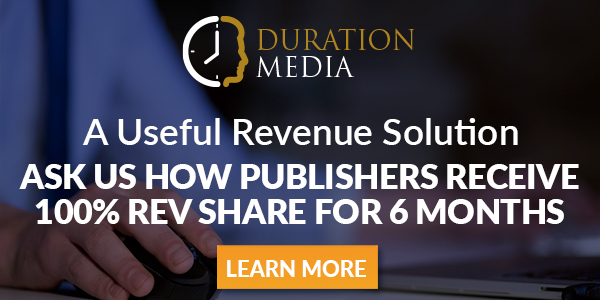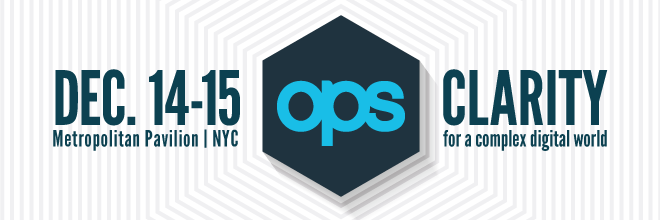| CCPA Drives Wave Of Privacy Requests |

Photo by Andrea Piacquadio from Pexels
|
| As if Coronavirus-embattled publishers needed anything else to worry about. Privacy-compliance platform DataGrail reported a significant increase in consumer privacy requests totaling 50 per million consumer records in Q1. The flurry of privacy requests was initially prompted when companies started updating their privacy policies in compliance with CCPA back in January. But in February and March, the numbers somewhat stabilized, until a second swarm hit in April, following COVID-19 related security and privacy concerns becoming more public with people working from home. Out of all the privacy requests analyzed in the report, deletion requests led the pack at 40%, followed by DNS requests at 33%, and access requests at 27%. DataGrail expects DNS requests to dominate in the future as consumers become more educated about CCPA. Another study, from privacy rights management platform Truyo, found that 51% of companies have received more than 10 requests per week and 20% received more than 100. Of the 221 data privacy decision makers surveyed between March 31 and April 13, the study found that 56% are expecting an increase in requests due to COVID-19. |
| CCPA is going to be extremely costly for pubs, at least initially. Back in October, we reported that CCPA would immediately reduce revenues for the average website equal to 7% of total programmatic revenues. And now DataGrail figures that if companies choose to process CCPA requests manually, it will cost them $140,000 - $275,000 per million consumer records. To suss out a total, just assume you’ll be processing at least 100 requests per million consumer records each year. Truyo's research found that 64% of respondents anticipate spending more than $100K on compliance in 2020. Now, that’s nothing to sneeze at. Would you believe that CCPA hasn’t even been finalized yet—even though the July 1 enforcement date is still on the books and CCPA 2.0 (aka CPRA) is lurking right around the corner? A major difference with the new reg, if it makes it to the ballot this year, is that it contains provisions encouraging data minimization and requires opt-in rights around the use of sensitive data. But fortunately, it’s not likely to go into effect until 2023. Whew! With the first wave of CCPA Class Action Suits already filed, and the likelihood—that companies that weren’t compliant prior to July—could be penalized by California’s Attorney General, a wait-and-see approach is no longer an option. You might want to watch this video of Jessica B. Lee, Partner and Co-Chair of Privacy, Security & Data Innovations at Loeb & Loeb, laying out some clear strategies for braving CCPA and future data regulations in her AdMonsters PubForum Keynote back in March. |
| Browser Hookup For ‘Burner’ Emails |
| Burner email addresses aren’t a new concept… But a browser enabling the easy creation of them certainly raised our eyebrows. Firefox-maker Mozilla announced that its Private Relay service is currently in closed beta. This Firefox add-on will enable users to create unique aliases for web forms and shield a user’s actual email address. The aliases then serve as conduits to the user’s true inbox. In addition to establishing an extra layer of privacy with little effort, users can easily destroy aliases if they start receiving spam or unwanted advertising messages. In effect, they’re completely disposable burner emails. |
| As we’ve been discussing identity marketing a lot lately—we even wrote a playbook all about it—we couldn’t help but think that this would seriously hamper identity resolution efforts. User emails are durable, more permanent identifiers than cookies, hence why data companies of all stripes are encouraging publishers to grab them via ingenuity (often taking the form of newsletters). However, widespread use of tools like Private Relay seems like they could make such an effort pointless—publisher data would be attached to a meaningless identifier that couldn’t be easily attached to a device graph. How much should you worry? Well, only the more technically astute and privacy-centric users are likely to adopt it, but the fact that it’s as simple as a browser add-on is worrisome. Even more worrisome is that Apple announced a similar service last summer. |
| Beware the Slippery Slope | ||
| “The definition of insanity is doing the same thing over and over again, but expecting different results.” Albert Einstein There’s no denying that we’re overwhelmed by an unprecedented event that is causing profound upheaval in our personal lives and impacting our businesses and professional activities in ways that none of us could have imagined. Face to face with this crisis many have offered platitudes intended to provide comfort for our distress, “Stay safe and healthy. Call me if I can do anything for you. We are all in this together.” No harm, no foul, and no help. The human toll has been devastating by every measure. For business and the economy, the damage truly is incalculable. Unfortunately for the digital media industry much of what we’ve done confirms Einstein’s warning and echoes George Santayana’s caution that “Those who don’t learn history are doomed to repeat it.” Lowering floor prices, easing brand-safety standards, increasing ad load; all of these are desperate measures that will undo so much of what we have accomplished to make our industry better and more highly regarded. The race to bottom will result in long-term damage to an ecosystem that we’ve tried for so long to strengthen, make accountable, more transparent, sustainable and safer. |
||
| Quality information and experiences are enduring and resilient. Reliable, well-researched, enjoyable, engaging content and activities reward us intellectually, emotionally, physically, dare we say, spiritually. Publishers need to nurture and improve what they offer to readers, not diminish the quality of the user experiences that they have worked so hard to create and curate. Advertisers need to find the right partners, demand excellence, support high-quality content, and we all need to look forward not back. “Choose wisely Grasshopper.” | ||
|
||
 |
| NY Times Washes Local Pubs' Hands |
| In honor of World Press Freedom Day 2020 this past Sunday, the New York Times decided to support local news outlets by launching a campaign encouraging people to search for and support their local news outlets—both for-and nonprofit—with a monetary donation The NY Times Support Local Journalism Page reads: “Local journalism is in crisis and at risk of disappearing. These vital resources are critical to the safety, security and knowledge of our communities, never more so than in these difficult times. On World Press Freedom Day and every day, we encourage you to find a local news organization you trust and support it.” |
| Already in dire straits, many local publishers have borne the brunt of the Coronavirus advertising decline, resulting in massive layoffs and furloughs, despite media traffic rising significantly across the board. Even Gannett, the largest newspaper chain in the U.S. had to resort to layoffs. But the verdict is still out on whether those cuts were related to the pandemic or a recent merger with GateHouse in late 2019. Large news sites like the NY Times managed to benefit from a surge in subscriptions after taking down their paywall on Coronavirus-related coverage—a tactic that has proven much too risky for smaller pubs. This turn of goodwill should only further endear the major news brand to consumers and advance their subscription efforts. And while Google and Facebook have managed to ride the storm, relatively unscathed from the advertising downturn—they’ve also lent their support to struggling news outfits. Facebook has been handing out grants to the tune of $100 million—$25 million in grants to local news and $75 million in marketing spend. And Google recently suspended ad-serving fees. As we’ve noted before, these bailouts from the duopoly only amplify just how broken publisher monetization is. |
| The Hunt for Alternative Affiliate Revenue |
| Call it adding insult to injury—already suffering from dried up advertising spend, publishers learned Amazon is slashing affiliate referral rates dramatically, with some verticals witnessing a 70% cut. We’ve already written about how Amazon squeezed other affiliate revenue platforms out of its platform—looks like publishers are getting the same treatment. |
| The consumer demand for e-commerce and delivered goods is higher than ever, and when Amazon can’t fulfill the service, startups are muscling in. The same is true for affiliate services—Amazon alternatives are picking up the slack, according to Forbes. So publisher, this isn’t the time to give up on your affiliate revenue program, but diversify. As Folio points out, commissions are currently flourishing for many lifestyle publishing brands. |
 |
||
|
||
 |
||
|
||
 |
||
|







